2009 Biking Vietnam
The small town of Hoi An is a Unesco World Heritage site, and
fabulous. From the mid-1500s, maritime trade with the Chinese, Japanese and
Europeans flourished, with many Chinese and Japanese establishing permanent
residences here. Undamaged during both the French and American wars, the old
buildings are charming, the food to-die-for-doll, and the pace laid back.
Nearby are the My Son Cham towers. The Cham empire flourished in central Vietnam during
the 9th century. They were Hindus whose prosperity came from trade in
sandalwood and slaves (and probably piracy). In the 1600s the majority of the
Chams converted to Islam, influenced by Arab merchants who stopped along the Vietnam coast en route China. The area
was annexed by the Vietnamese in 1720 and many Chams fled to Cambodia, Malaysia
and China.
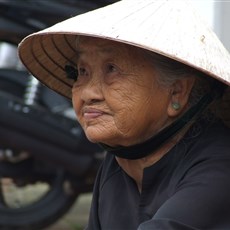
Hoi An
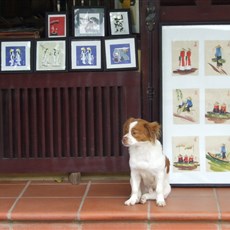
Hoi An
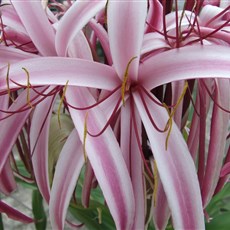
Hoi An Fujian Assembly Hall
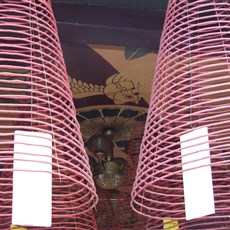
Hoi An Fujian Assembly Hall
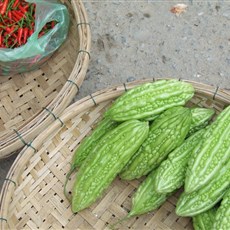
Hoi An
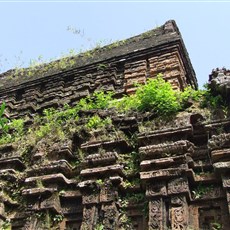
My Son Cham towers
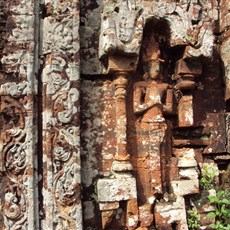
My Son Cham towers
We visited the site of the My Lai massacre. On 16 March 1968, My
Lai and three other hamlets considered Viet Cong* strongholds,
were attacked by American troops without direct provocation. 504 unarmed men
(mainly elderly), women and children were murdered (US sources say 347). The horrific
events were documented by a military photographer. One soldier shot himself in
the foot so as not to participate. My Lai fuelled anti-war protests in the US, with
returning soldiers being called “Baby killers”, and protestors chanting: “Hey,
hey LBJ (Lyndon B Johnson), how many kids did you kill today?” Lieutenant
Calley was court-martialed, found guilty of the murder of 22 unarmed civilians,
and sentenced to life in 1971; he was paroled in 1974. Of the 11 people working
at the My Lai museum, 6 are survivors or
children of survivors.
* The Viet Minh, headed by Ho Chi Minh,
were the north Vietnamese nationalist / communist soldiers who fought against
the Japanese during WW2 (with assistance from the OSS – the forerunner of the
CIA) and against France for their independence. Viet Cong is a shortened
version of the Vietnamese way of saying “Vietnamese communist”. It refers to
the members of the National Liberation Force of Southern Vietnam (NLF) who
fought against the Diem regime.
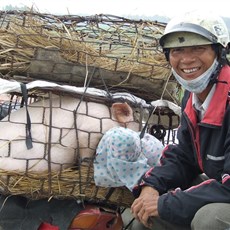
En route Quang Ngai
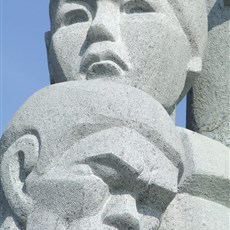
My Lai (Son My)
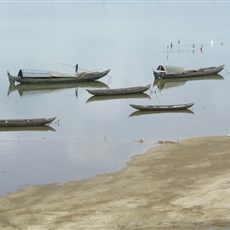
Quang Ngai
We took a bus south to Nha Trang (great
town, great beach, great food) and another overnight train to Ho
Chi Minh City (still called Saigon).
From there we cycled south and west into the Mekong
delta to Chau Doc near the Cambodian border. At 4,350 km, the Mekong is the
world's 12th-longest river and the 3rd-longest in Asia
(after the Yangste and the Yellow). It originates on the Tibetan Plateau and
runs through China, Burma, Thailand,
Laos, Cambodia and Vietnam. Over 60 million people
depend on the river and its tributaries for food, water and transport. The delta
is Vietnam’s
rice bowl, producing 38% of the annual food crop from 10% of the land mass. It
is known as the Nine Dragons for the nine tributaries that flow into the South China Sea. The delta was once part of Cambodia.
Ongoing border disputes led in the 1970s to an appalling massacre of Vietnamese
villagers by the Khmer Rouge during which 3,157 men, women, and children were
murdered at Ba Chuc (only 2 survivors). During their four years in power, the
Khmer Rouge murdered 1 in 5 Cambodians but still found the time to launch
several similar raids into Vietnamese territory. The Ba Chuc raid was one of
the events that prompted the Vietnamese invasion of Cambodia in 1978 and the overthrow
of Pol Pot.
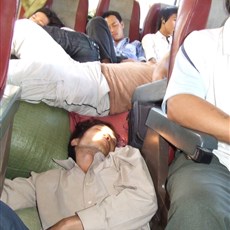
En route Nha Trang
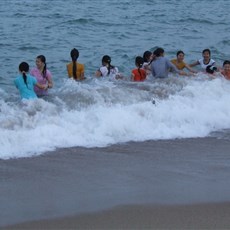
Nha Trang
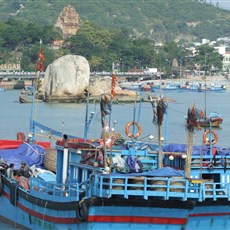
Nha Trang
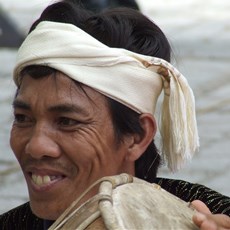
Nha Trang
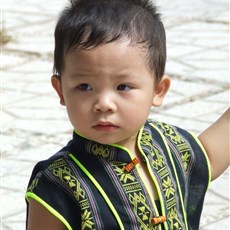
Nha Trang
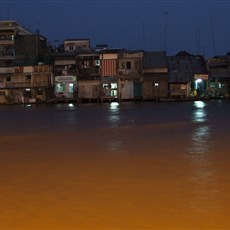
Mytho Mekong Delta
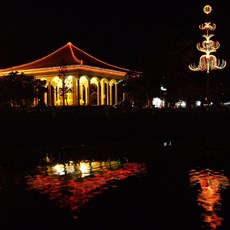
Mytho Mekong Delta
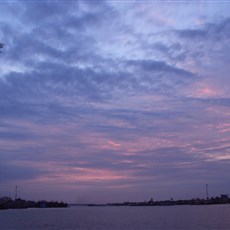
Mytho Mekong Delta
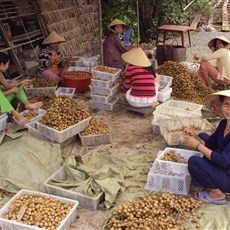
En route Sa Dec Mekong Delta
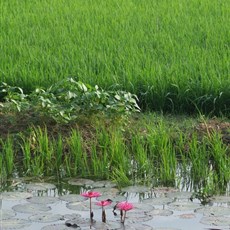
En route Chau Doc
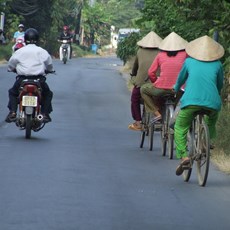
En route Chau Doc
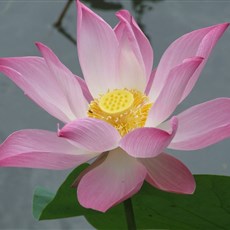
En route Chau Doc
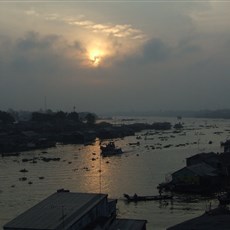
Chau Doc
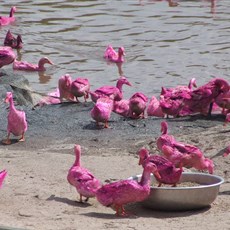
Chau Doc
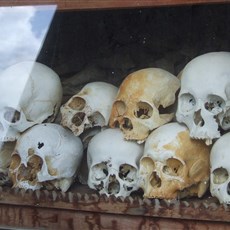
Ba Chuc
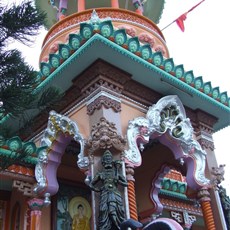
Tay An pagoda